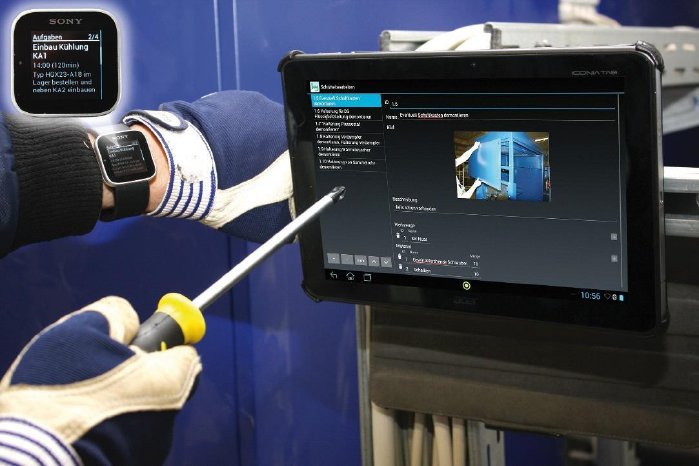The fourth industrial revolution, called “Industry 4.0,” uses communication technologies mainly seen on the internet inside factories. The production sites are thus provided with a certain degree of intelligence in order to work highly efficiently, even when it comes to small series or customized items. “In the process, however, this should not create the impression that there will no longer be any room for human beings in this work environment,” says Professor Bodo Urban, head of the “Interactive Document Engineering” competence center and head of the Rostock site of Fraunhofer IGD. “It will consist of more than just a man and a dog.”
Urban jokingly alludes to a bugaboo where the employee structure of an Industry 4.0 site is only a man and a dog: it is the man’s job to feed the dog, and the dog’s job to make sure the man does not touch the machines and computers. According to Urban, collaboration between man and machine will be much more direct in Industry 4.0. For this purpose, machines and robots will learn how to see and respond to employees. People will always keep an overview of the process, as intelligent assistance systems provide them with all key information on screens, tablets, or AR data glasses. To a certain extent, the factory understands what needs to happen for the best possible production process. Management, control, and troubleshooting will still be a person’s job.
In 2014, only 29 percent of German SMEs had an explicit strategy for the introduction of Industry 4.0. For 70 percent of the respondents, the applications still had no or only limited significance in production. Urban is convinced that some rethinking is happening already and that the majority of SMEs underestimate the opportunities of Industry 4.0. “The highly specialized German SMEs are able to keep up their competitive edge with these technologies, and perhaps even expand their market leadership,” says Urban, whose team of researchers is working on allowing the operators to handle highly complex machinery with ease.
For more information:
http://www.igd.fraunhofer.de/en/Institut/Abteilungen/IDE/Projekte/PlantHand


